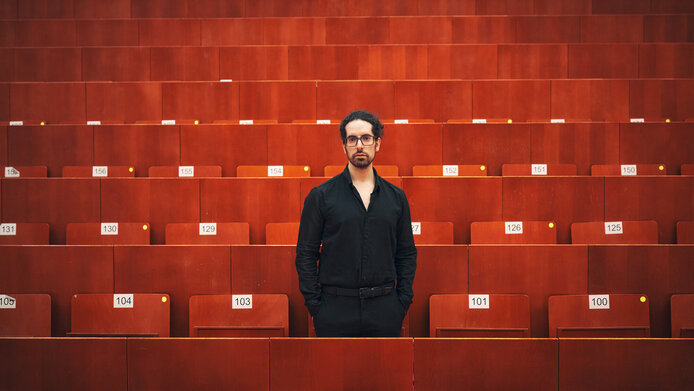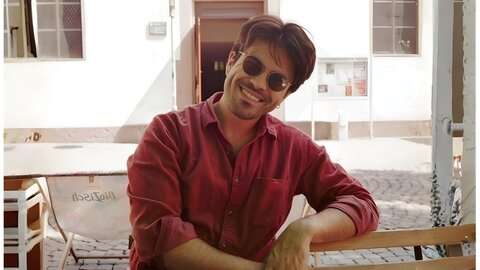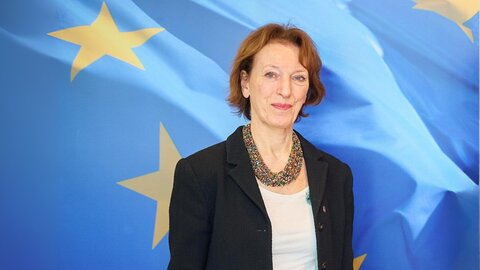Looking for the unanswerable questions

What is your project about?
Juan P. Aguilera: Around 1930, Austrian mathematician Kurt Gödel taught us that there are some questions in mathematics that just don’t have answers. This completely changed our conception of science: even though it is our main tool for finding answers, somehow there are questions that don't have any.
There are very clear rules for what you can and cannot do in mathematics. Whenever you find an answer to a question you can't just say that something is or is not the case: you have to explain why and present your reasoning in a proof. Gödel showed that there are some questions for which you just cannot find a proof that gives you a definitive answer.
The goal of this research project is to develop new tools to determine whether certain questions, especially in mathematics, do or don't have answers. Nowadays, we know of many examples of questions that don't have answers. However, there may also be many that don’t have answers that we don’t know about, because we don’t have the tools to find them.
If you're working on a problem and you cannot find a solution, it could be because it's just a very difficult problem, or it could be because there's just no solution. You'd probably like to know which one it is before you spend years or decades working on it.
The novel thing about this project is that it incorporates ideas from other parts of logic, like set theory and computability theory. And it's interesting because these fields of mathematics look like they're very far apart, but they seem to be coming together in the recent past.
We work in the field of proof theory. This part of logic doesn’t deal with the construction of proofs themselves and how to use them to answer questions. Instead, it’s all about the existence of proofs – whether there is a proof for a claim in mathematics or not. We are now building on work being carried out since the middle of the twentieth century, namely infinitary proofs and functorial proofs, which describe abstractions of mathematical proofs of infinite length based on different kinds of infinities.
Personal details
Juan P. Aguilera first studied applied mathematics and earned his PhD on infinity in mathematics at the TU Wien. He worked as a visiting scholar at Harvard University, Rutgers University, the University of Cambridge, and the University of Hamburg and held a position at the University of Vienna. His contributions to mathematics have been recognized with multiple awards and in 2023, he completed his habilitation thesis on mathematical logic. He is currently affiliated with the TU Wien.
Why is your research relevant?
Aguilera: The reason why this project is important is that – at this very moment – there are potentially thousands of scientists all around the world working on mathematical problems that are unsolvable and we have no way of telling them that they are unsolvable because we don't have the tools. So, we'd like to develop tools to determine which problems are actually unsolvable, so we can focus our efforts on problems that can be solved.
A second reason why the project is important is the combination of proof theory with other parts of logic: back in the day when modern logic started – in the 1930s – it was a very close community. As the field became deeper and deeper and many people were doing very impressive work, naturally, groups started to specialize, and the interactions between these groups became less frequent. I find the idea of combining seemingly unrelated ideas developed by different people thrilling.
What are the first steps in your project going to be?
Aguilera: The first thing we have to do – before the project formally starts – is to document what has been done so far. The project is based on very recent work, some by me and co-authors, which has not yet been published. The work of new members of the team who will be joining us thanks to the START Award will build on this. I will need to work extra hard to make sure that all the background information is accessible and available to them.
What does the START Award mean for your research?
Aguilera: The project team will grow significantly and the project will move much faster than it would have otherwise. The START Award is a great opportunity to expand and investigate these fascinating questions. The team members will be very happy to be working on a START project.
What is your motivation to do this research?
Aguilera: How could you not be motivated? I think these are just such exciting questions. Can't you remember when you were a child – thinking about mathematics, numbers, infinity, and where it all ends? At least I can. It feels like now we have the possibility to start looking into these deep questions. How could you not?
How did you arrive at this field of research?
Aguilera: It's kind of a funny story. It must have been my first or second week during my undergrad studies. I took an algebra class and I always liked to read ahead in the textbook looking for spoilers. I saw some comment in the book about the axioms of mathematics, its foundations. So, after class I went up to the professor and I said: “What does this mean? What are the axioms?” And then he looked at me and with a very serious voice he said: “Never think about that.” Of course, I was a rebellious student and I immediately went to the library and started looking it up. I think that was the professor’s plan all along.
The FWF START Award
The START program of the Austrian Science Fund (FWF) is aimed at outstanding young researchers, giving them the opportunity to plan their research in the long term and with a high degree of financial security. It is endowed with up to €1.2 million and is one of Austria’s most prestigious and most highly endowed awards alongside the FWF Wittgenstein Award.





